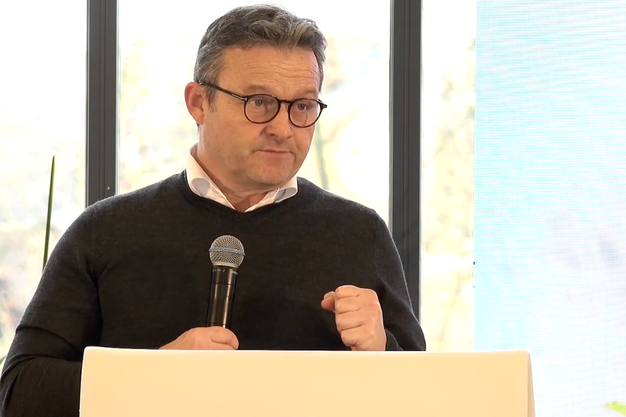Education Professional Standards Board welcomes two new members – Kentucky Teacher

Report on New Appointments to the Kentucky Education Professional Standards Board
1.0 Introduction and Mandate Alignment with SDG 4
Governor Andy Beshear has appointed two new members to the Kentucky Education Professional Standards Board (EPSB). The EPSB, established under the Kentucky Education Reform Act of 1990, is the primary institution responsible for upholding professional standards for educators in the Commonwealth. This function is in direct alignment with the United Nations’ Sustainable Development Goal 4 (SDG 4), which aims to ensure inclusive and equitable quality education and promote lifelong learning opportunities for all. By setting and enforcing standards for teacher certification and professional ethics, the EPSB serves as a key mechanism for achieving SDG Target 4.c: substantially increasing the supply of qualified teachers.
2.0 New Board Member Profiles
The new appointments bring extensive experience from higher education, strengthening the partnership between educator preparation programs and state governance, a principle vital to SDG 17 (Partnerships for the Goals).
-
Nicholas Pace
- Representation: Postsecondary Institutions
- Position: Dean of the University of Kentucky’s College of Education
- Term Expiration: June 30, 2026
- Educational Background: Doctorate in Educational Leadership (University of Northern Iowa), Master’s in Educational Leadership (Drake University), Bachelor’s in Sociology (University of Northern Iowa).
- Professional Experience: His career path from social work to teaching and school administration demonstrates a commitment to creating equitable educational systems, contributing to SDG 10 (Reduced Inequalities).
- Stated Objective: Mr. Pace emphasized that “Strong P-12 education is the gateway to bright futures for individuals, communities and society,” reflecting the core tenets of SDG 4 to empower individuals and promote sustainable community development.
-
Elizabeth Dinkins
- Representation: Independent Colleges and Universities
- Position: Dean of Bellarmine University’s School of Education
- Term Expiration: September 10, 2028
- Educational Background: Doctorate in English Education (University of Virginia), Master’s in Education (Vanderbilt University), Bachelor’s degree (The Evergreen State College).
- Professional Experience: Former middle school English teacher and literacy coordinator with leadership experience as president of the Kentucky Association of Colleges for Teacher Education.
- Stated Objective: Dr. Dinkins highlighted the board’s work to “address the teacher shortage, uphold educator standards and meet the needs of Kentucky’s schools and students.” This focus directly supports SDG 4 by ensuring that classrooms are staffed with qualified professionals, which is foundational for providing quality education.
3.0 Contribution to Sustainable Development Goals
These appointments reinforce Kentucky’s commitment to the 2030 Agenda for Sustainable Development through several key goals:
- SDG 4: Quality Education: The primary focus of the EPSB. The expertise of the new members will enhance the board’s ability to develop policies that improve teacher preparation and retention, directly impacting the quality of education statewide.
- SDG 8: Decent Work and Economic Growth: By ensuring a high standard of education, the EPSB contributes to developing a skilled and capable workforce, which is essential for sustainable economic growth in the Commonwealth.
- SDG 10: Reduced Inequalities: Upholding universal professional standards for all educators helps ensure that every student, regardless of location or background, has access to a quality education, a critical factor in reducing societal inequalities.
- SDG 16: Peace, Justice, and Strong Institutions: The EPSB exemplifies an effective and accountable institution. These appointments demonstrate a transparent governance process dedicated to strengthening the educational framework of the state.
Analysis of Sustainable Development Goals in the Article
1. Which SDGs are addressed or connected to the issues highlighted in the article?
The primary Sustainable Development Goal (SDG) addressed in the article is:
- SDG 4: Quality Education
Explanation: The article focuses entirely on the Education Professional Standards Board (EPSB) of Kentucky, an institution whose mandate is to ensure the quality of education. The text states that the EPSB has the “authority and responsibility to establish standards and requirements for obtaining and maintaining a teaching certificate.” Furthermore, the new members express their commitment to supporting “top quality P-12 education across the Commonwealth” and “uphold educator standards.” These functions are central to the mission of SDG 4, which aims to ensure inclusive and equitable quality education for all.
2. What specific targets under those SDGs can be identified based on the article’s content?
Based on the article’s content, the following specific targets under SDG 4 can be identified:
- Target 4.1: By 2030, ensure that all girls and boys complete free, equitable and quality primary and secondary education leading to relevant and effective learning outcomes.
- Target 4.c: By 2030, substantially increase the supply of qualified teachers, including through international cooperation for teacher training in developing countries, least developed countries and small island developing States.
Explanation: The article’s emphasis on the EPSB’s role in establishing and upholding high standards for teachers directly contributes to this target. The board’s work to ensure educators are qualified and adhere to a “Professional Code of Ethics” is a fundamental mechanism for improving the quality of P-12 education, which in turn leads to more effective learning outcomes for students.
Explanation: This target is explicitly addressed when new board member Elizabeth Dinkins is quoted, stating, “I know this board works hard to address the teacher shortage.” The appointment of two deans from university schools of education (University of Kentucky and Bellarmine University), which are responsible for preparing new educators, further reinforces the connection to increasing the supply of qualified teachers.
3. Are there any indicators mentioned or implied in the article that can be used to measure progress towards the identified targets?
The article, being a news announcement, does not provide quantitative data but implies several qualitative indicators that can be used to measure progress:
- Indicator for Target 4.1 (Implied): Existence of a professional standards board to establish and enforce teacher certification requirements.
- Indicator for Target 4.c (Implied): Efforts and policies aimed at reducing the teacher shortage.
Explanation: The entire article is about the EPSB, which was “Established as part of the Kentucky Education Reform Act of 1990.” The existence and functioning of such a body, which sets standards and can take disciplinary action, is a clear indicator of a system in place to ensure teacher quality. The qualifications of the new members (deans of education colleges) also serve as a proxy indicator for the commitment to high standards.
Explanation: The article directly mentions that the board “works hard to address the teacher shortage.” This statement implies that the rate of teacher shortages is a key metric of concern. Progress towards Target 4.c could be measured by tracking the reduction in this shortage over time. The collaborative work of colleges and universities in preparing educators, as mentioned by Dinkins, is part of the strategy to address this indicator.
4. Table of Findings
| SDGs | Targets | Indicators |
|---|---|---|
| SDG 4: Quality Education | 4.1 Ensure quality primary and secondary education. | Existence and enforcement of professional standards, certification requirements, and a code of ethics for educators by a governing body (the EPSB). |
| SDG 4: Quality Education | 4.c Substantially increase the supply of qualified teachers. | The rate of teacher shortages and the implementation of institutional efforts to address it, as stated by a board member. |
Source: kentuckyteacher.org
What is Your Reaction?
 Like
0
Like
0
 Dislike
0
Dislike
0
 Love
0
Love
0
 Funny
0
Funny
0
 Angry
0
Angry
0
 Sad
0
Sad
0
 Wow
0
Wow
0













































































